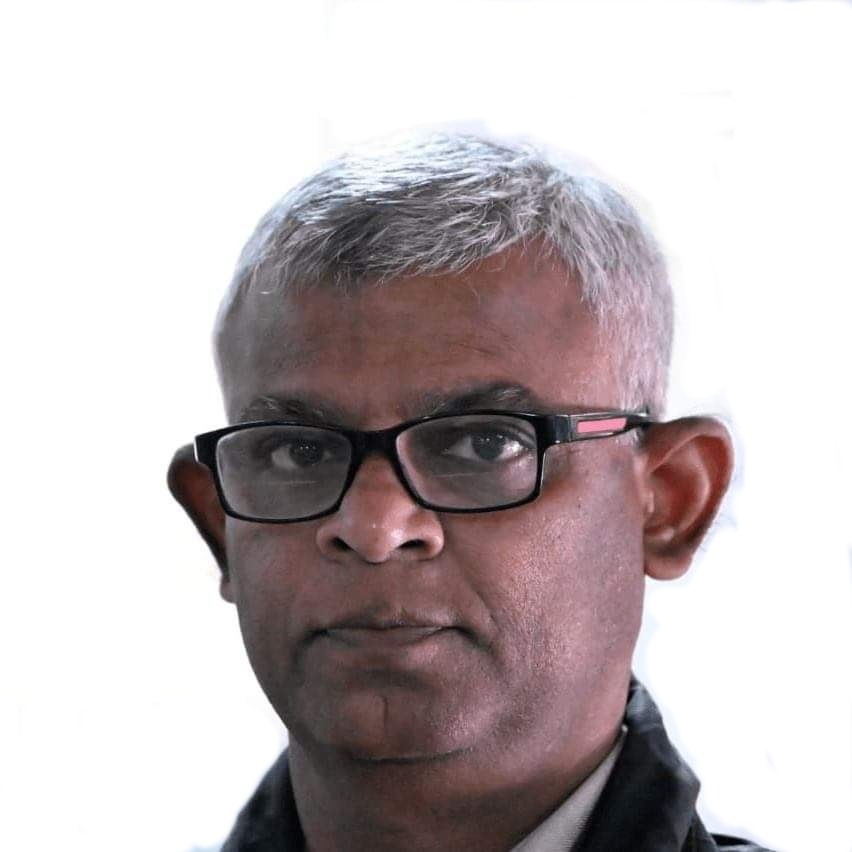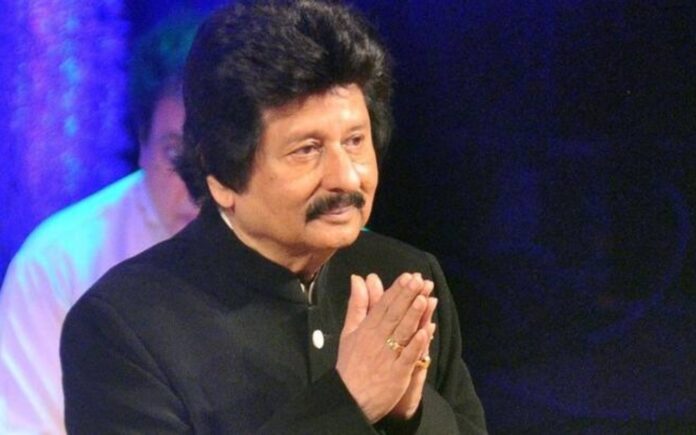Ghazals had a different name, Pankaj Udhas
The ghazal “Thodi-Thodi Piya Karo” seems to have been written at a time when the sentiments of alcohol had intensified

Niraj Krishna
In the world of music, Pankaj Udhas is a ghazal singer who has captivated listeners with his singing for the past four decades. With his sweet voice, he has enchanted generations. The magic of his velvety voice used to echo in everyone’s ears. It was such that the words he uttered from his tongue would add charm to any gathering. Whenever the topic of alcohol arose, he would teach people the art of drinking. With his melodies and rhythms, he would express drinking in such a way that people became his disciples. Sometimes he would refer to love as alcohol, and sometimes he would call the intoxication in the beloved’s eyes alcohol.
His selection of ghazals mostly revolved around alcohol, which attracted a large number of listeners. ‘Ek Taraf Uska ghar, Ek Taraf Maykada’, ‘Thodi-Thodi Piya Karo’,’sharab Chees Hi Aisi Hai’, ‘Ek Aisa Ghar Chahiye Mujhko’, Na Samjho ki Hum Pi Gaye Peete-Peete’,…etc. Pankaj Udhas has many old and famous ghazals.
The ghazal “Thodi-Thodi Piya Karo” seems to have been written at a time when the sentiments of alcohol had intensified. There’s a line in the ghazal: “Piyo, Lekin Rakho Hisaab.” Now, those who drink alcohol may rarely keep track of how much they’ve had and how much they should drink. One thing is certain: the common people used to enjoy just hearing the word alcohol in this ghazal.
Pankaj has admitted that I have sung many ghazals that had the flavor of alcohol, but it was merely a coincidence. I never sang ghazals with the thought that singing about the taste of alcohol would appeal to people. Even when I sang the ghazal “ Sabko Maloom Hai Mai Sharabi Nahi, Phir Bhi Koi Pilaye, To Mai Kya Karoon?” I also sang this ghazal because I liked it. I liked the simplicity of this ghazal. I didn’t understand whether I was singing for the alcoholics or for those who don’t drink alcohol. I also consider it my misfortune that my ghazals were associated with alcohol.
There is no doubt that for these ghazals, Pankaj faced considerable criticism from a section of society, but these ghazals were widely appreciated. They were requested at big gatherings and on big stages. The audience’s demand was always there, Ek Taraf Uska ghar…
Pankaj Udhas was synonymous with ghazals. Ghazal is an Arabic word that means ‘talking to the beloved’. It is essential to be familiar with Urdu literature for writing and singing ghazals. When you feel a ghazal and sing it, and then just write it down on paper and sing it, there is a world of difference between the two. The words of a ghazal should be such that everyone can recognize them. At the same time, they should be able to feel it. Due to his interest in ghazal singing, he also learned the Urdu language.
Pankaj Udhas was born on May 17, 1951, in Jetpur, Gujarat, into a wealthy family. The entire family of Pankaj Udhas was associated with music. Pankaj Udhas started singing at the mere age of seven. His eldest brother, Manhar Udhas, had achieved some success in Bollywood as a Hindi playback singer. With his help, Pankaj entered the world of music. During the India-China war, he sang the song ‘Hey Mere Watan Ke Logon’ on stage, which was liked by the audience, and he was awarded ₹51 as a prize.
Pankaj received his education from Sir B.P.T.I. Bhavnagar. After that, his family moved to Mumbai, and Pankaj studied at St. Xavier’s College there. After learning the nuances of playing the tabla for four years at the Rajkot Music and Drama Academy, he also worked in a bar. His singing debut in Bollywood came in the film ‘Kamna’ in 1972, where he lent his voice for the first time. Later, he went to Canada, where he used to sing ghazals in small programs.
In 1980, after the release of their album ‘Aahat,’ their ghazals came into discussion, which was quite successful. After that, one after the other, they sang many beautiful ghazals and became well-known ghazal singers in the industry. They are known for their significant contributions to Hindi cinema and Indian pop music.
In 1984, they performed at the Royal Albert Hall in London, where only selected artists get the opportunity to perform. In that program, Pankaj Udhas sang for the first time, ‘Chandi Jaisa Rang Hai Tera Sone Jaise Baal.’ This song became a tremendous hit. Pankaj Udhas’ popularity was at its peak. Songs like ‘Na Kajre Ki Dhaar,’ ‘Niklo Na Benaqab,’ ‘Aap Jinke Kareeb Hote Hain,’ ‘Deewaron Se Milkar Rona Achha Lagta Hai,’ ‘Mohe Aai Na Jag Se Laaj,’ and ‘Main Itna Jhoom Ke Naachi Aaj Ki Ghungroo Toot Gaye’ were playing in every household. There was a different kind of magic and stability in Pankaj Udhas’ ghazal singing. Pankaj Udhas’ ghazals captivated everyone. People listened to them spellbound. Therefore, along with ghazal singer Jagjit Singh, Pankaj Udhas’ name remained in the most discussion.
Pankaj Udhas became famous all over the country and the world in 1986 when he sang the ghazal ‘Chitthi Aayi Hai’ in Sanjay Dutt’s film ‘Naam.’ This ghazal made everyone cry. This song of Pankaj Udhas became immortal among the people. The lyrics of this song were written by Anand Bakshi.
Pankaj Udhas said, Throughout his career of live performances, there was never a demand for any other song more than this one. After this, people used to request other songs in films: ‘Jiye To Jiye Kaise Bin Aapke.’ The song ‘Chitthi Aayi Hai’ was included in BBC Radio Millennium’s selected hundred songs.
Pankaj Udhas had a special connection with Bihar as well. He used to come to the Giddhaur Mahotsav (Jamui district) in Bihar every year regularly. On the occasion of his completing 25 years of ghazal singing in 2006, the Indian government honored him with the Padma Shri. Apart from this, he has also been honored with awards like the ‘K.L. Saigal’ award and the ‘Ustad Gulab Khan’ Lifetime Achievement Award in the world of music. Pankaj has sung in more than 700 films in his career.
Pankaj Udhas is called the emperor of the world of ghazals in the world of music, although he started his career with playback singing. But it was ghazals that gave him recognition. He is also credited with taking ghazals out of the gatherings of the rich. In fact, at that time, it was said about ghazals that it is the hobby of the rich, but Pankaj Udhas had reached it to every street corner and autorickshaw. Today, his departure has left a significant void in the world of music, which has been difficult to fill for a long time. Pankaj may have gone, but he has left behind his melodies for everyone. He will always remain among us through his songs and ghazals.


